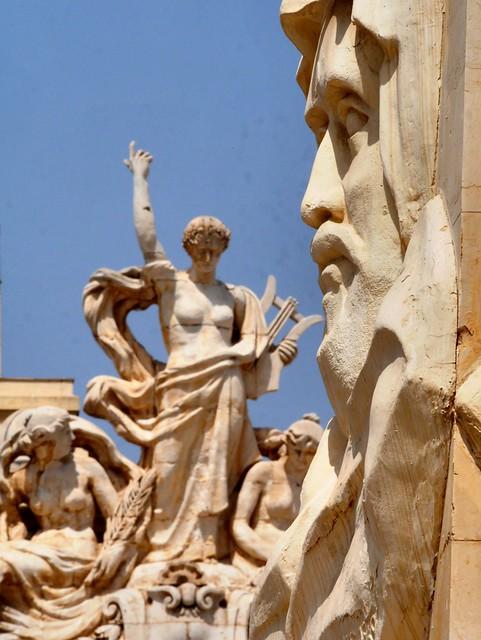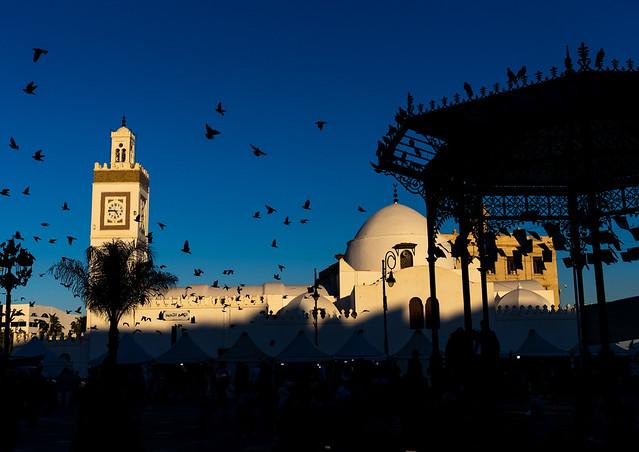Ouargla
Overview
Historical Significance
Ouargla, a city steeped in history, serves as a crucial crossroads of cultures and trade routes in the Sahara. Its origins trace back to ancient times, with evidence of human settlements in the region for thousands of years. The city flourished during the medieval period, becoming a pivotal center for commerce in salt, gold, and other valuable goods. The remnants of its historical significance can still be seen in the architecture and layout of the old city, known locally as the “Ksar.” The mud-brick structures and narrow winding streets echo the past, offering travelers a glimpse into the life of the Berber and Arab civilizations that have shaped Ouargla over the centuries.
Cultural Landscape
The culture of Ouargla is a vibrant tapestry woven from the influences of Berber, Arab, and French heritage. The local population, known for their hospitality and warmth, take pride in their traditions, which are showcased through music, dance, and art. The city is famous for its traditional music, particularly the “Hawzi” genre, which embodies the spirit of the Sahara. Travelers can experience the rhythmic beats of drums and the melodic sounds of the “oud” (a traditional string instrument) during local festivities and cultural events. Additionally, the art of carpet weaving and pottery is still practiced, with colorful designs reflecting the natural beauty of the Sahara Desert.
Atmosphere and Environment
The atmosphere in Ouargla is a captivating blend of desert tranquility and bustling market life. The city is enveloped by the golden sands of the Sahara, creating a stunning backdrop that changes with the light of day. Early mornings bring a serene silence, while the markets buzz with activity as vendors sell fresh produce, spices, and handmade crafts. The renowned “Souk” is a must-visit for travelers looking to immerse themselves in the local way of life. Here, one can find an array of goods, from traditional clothing to intricate jewelry, all set against the backdrop of the Sahara's breathtaking landscape.
Local Characteristics
Ouargla is also known for its unique geographical features, including the nearby Chott el Hodna, a vast salt flat that glimmers under the sun, creating an otherworldly experience. The city’s climate, characterized by hot summers and mild winters, influences the lifestyle of its residents, who often engage in evening social gatherings when the temperature cools down. The local cuisine is another highlight, with dishes like “couscous” and “mechoui” (roast lamb) being staples that reflect the region's agricultural bounty. Visitors should not miss the opportunity to enjoy a traditional meal in a local home or restaurant, where the flavors of the Sahara come alive.
Modern Development
In recent years, Ouargla has seen significant development, particularly in infrastructure and tourism. Modern amenities blend seamlessly with the historical charm of the city. The establishment of hotels and guesthouses caters to the growing number of tourists eager to explore the Sahara. This modernization has not overshadowed the city’s rich heritage; instead, it enhances the experience for visitors, enabling them to appreciate both the ancient and contemporary aspects of Ouargla. Sustainable tourism initiatives are being introduced, aiming to preserve the local culture while providing travelers with enriching experiences.
Conclusion: A Destination to Explore
For foreign travelers, Ouargla offers a unique glimpse into the heart of Algerian culture and the enchanting Sahara Desert. With its historical significance, rich cultural landscape, and warm hospitality, the city invites adventurers to explore its wonders. Whether wandering through the old Ksar, sampling local delicacies, or experiencing traditional music, Ouargla promises an unforgettable journey into the vibrant soul of Algeria.
Other towns or cities you may like in Algeria
Explore other cities that share similar charm and attractions.




